Gender Mainstreaming
the Politics of Water- Part 1
the Politics of Water- Part 2
a Video by Water For People
Gender mainstreaming is the process of assessing the implications for women and men of any planned action, including legislation, policies or programmes, in all areas and at all levels. It is a strategy for making women’s as well as men’s concerns and experiences an integral dimension of the design, implementation, monitoring and evaluation of policies and programmes in all political, economic and societal spheres so that women and men benefit equally (gender equality) and inequality is not perpetuated.
Key components:
- Recognising that no development activity is gender neutral.
- Recognising that women and men have different needs and that development activities can affect them differently.
- Understanding that women and marginalised people tend to have more limited access to information and more limited opportunities to participate, unless specific measures are taken to address these limitations.
- Facilitating the direct participation of both women and men in all activities, as beneficiaries, as stakeholders, as managers, etc.
- Ensuring there is appropriate benefit and positive outcomes from activities for women as well as men.
- Integrating a gender perspective into all phases of planning cycles.
- Strengthening the (political) will to achieve gender equality and equity, at the local, national, regional and global levels.
- Incorporating a gender perspective into the planning processes of all partners.
Guiding Principles for the Gender Mainstreaming Strategy Framework
Ownership and sustainability
By bringing to light the differences in the ways in which women and men experience water and sanitation in cities, this Framework aims at raising awareness among local actors, practitioners and operators of the need to respond to these experiences, thus engendering ownership and sustainability of projects by all stakeholders at community level. The Framework recognizes that participation of both women and men in planning and decision making processes are the key elements for ownership and sustainability of water and sanitation projects at community level.
Empowerment and Efficiency
The GMSF will build capacities for both women and men to allow them to participate effectively in the planning of water and sanitation projects and to use their talents and/or their time through volunteerism to fully contribute in the implementation at all levels. A key element in achieving efficiency is to recognize and enable the specific contributions of women in water and sanitation projects at community level. UNHABITAT’s commitment to the demand-led approach must translate into people being empowered so as to be able to make informal decisions.
Equity
From the perspective of the Framework, women and men, irrespective of their status must participate as equals in decision making, priority setting and resource allocation processes. A key practical means of realizing this principle is to ensure that sex-disaggregated data is used as the basis for planning and service delivery.
Partnership
Water and sanitation challenges in African and Asian cities are increasingly complex and require partnership and shared responsibilities between the public, private, and civil sectors. In implementing its GMSF, UN-HABITAT will work in close partnership with multi stakeholders’ forums comprising members from local authorities and civil society. Dialogue, and consensus, active and genuine participation in collective decision making, will characterize this partnership and will be based on the above principles.
Partnership between development agencies and the donor community is also essential for mobilizing sufficient financial and technical resources to meet set goals and to affect a real change at the grassroots level. Funds allocated for the gender mainstreaming should be sufficient to go beyond research and workshops into concrete projects with demonstrable impact on their lives.
Field experiences
The following projects are implementing gender mainstreaming methods.
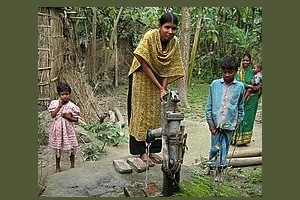 WaSH program in Rural Bangladesh |
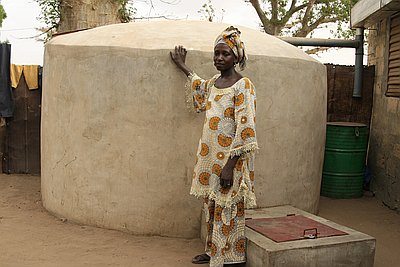 Safe water supply for Fayaco, Senegal |
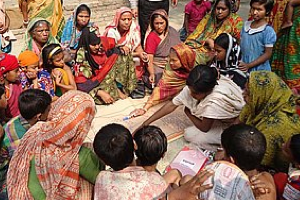 Access to safe water, sanitation and hygiene |
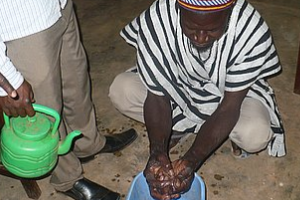 PHAST project |
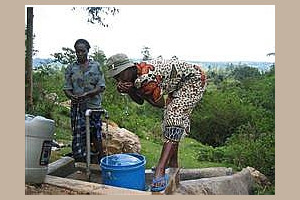 Upscaling sanitation with community credit | ||
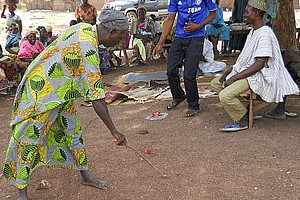 Upscaling CLTS for Healthy Communities |
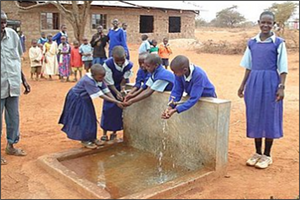 Improving Communal Health Through WASH |
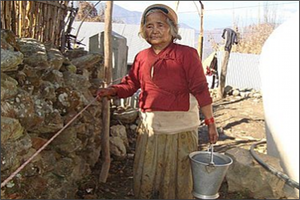 WASH in Gorkha and Baglung |
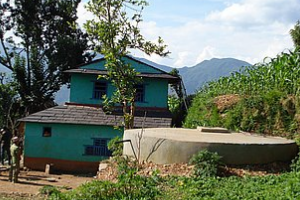 Community-based WASH Project in Nepal |
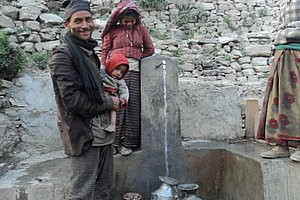 Rain Water Harvesting in Nepal | ||
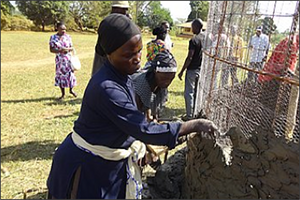 Rwenzori WASH Alliance Program |
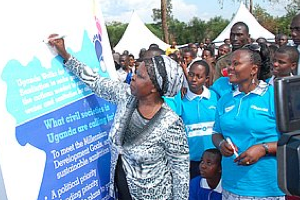 WASH Alliance Policy Influencing Programme |
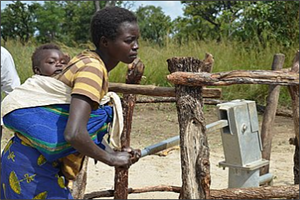 Northern Uganda WASH Alliance Project |
Gender mainstreaming links
- Depeasantisation: The gender aspect. Punjab, the land of the Green Revolution, is going through an agrarian crisis. This impacts not only men, but also women from small-scale and marginal farming communities.
- Men, women and mountains: Gender inclusive development - This introduction to the special issue on Gender and sustainable development in the mountains - Transformative innovations, tenacious resistances by Ritu Verma et al published in the journal Mountain Research and Development, highlights the poor situation of women as well as gender discrimination, exploitation and disenfranchisement of women in the mountain regions despite gender mainstreaming efforts over the years.
- Répertoire des outils pédagogiques Eau, assainissement & Coopération. Social sustainability tools for WASH, includes gender topics. French and English versions.
Clean Water, Tanzania
- CHECKLIST FOR GENDER MAINSTREAMING IN THE WATER AND SANITATION SECTOR. AFRICAN DEVELOPMENT BANK AFRICAN DEVELOPMENT FUND. September, 2009.
- Gender in Water and Sanitation. Water and Sanitation Programme (WSP) - World Bank. November, 2010.
- Mainstreaming gender into Water, Sanitation and Hygiene (WASH) programmes: A Training Manual for Water Professionals. Ministry of Gender and Family Promotion. Kigali, Rwanda. January 2007.
- A Story within a Story. Gender and Water in Uzbekistan. Asian Development Bank. 2013.
- This report provides a summary of the water supply and sanitation situation in Uzbekistan in relation to gender issues and main achievements in ADB's projects addressing the gender issues related to water supply and sanitation.
Acknowledgements
- FIETS sustainability approach. Dutch WASH Alliance.